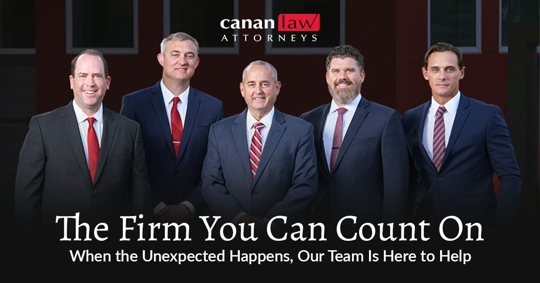This story brought to you by Canan Law, voted best St. Augustine Attorney in 2012.
In the State of Florida, a person charged with possession of or trafficking in prescription drugs can contest the charges with proof of a valid prescription. As the Fourth District Court of Appeal recently explained in Wagner v. State, the prescription defense holds even when the prescription was gained by certain illegal means.
James Wagner was convicted of trafficking in Oxycodone, Xanax possession, withholding information from a practitioner and two separate counts of obtaining Oxycodone and Xanax by fraud. According to prosecutors, Wagner obtained prescriptions for the drugs from two physicians – doctors Terrero and Doldan. Evidence presented at trial indicated that Dr. Doldan prescribed Wagner Roxicodone, Xanax, and a bottle of Oxydose, while Dr. Terrero prescribed him Oxycodone and Xanax about 15 days later.
Wagner signed forms for the prescriptions from Dr. Terrero stating that he had not received a narcotic drug prescription from any other doctor. It is unlawful in Florida for a person receiving a prescription for a controlled substance to withhold from the prescribing doctor information about similar prescriptions issued in the last 30 days.
Wagner was arrested after allegedly setting up a deal to sell certain prescription drugs to a confidential police informant. During a search of his car, officers found four bottles of Oxycodone and Xanax, each of which Wagner had obtained with prescriptions from Dr. Terrero.
The trial court denied Wagner’s motion for acquittal and, after closing arguments, instructed the jury on the “valid prescription” defense. Under Section 893.13(6)(a) Florida Statutes (2007), a person is not guilty of possession of a controlled substance where the substance was “lawfully obtained from a practitioner or pursuant to a valid prescription or order of a practitioner while acting in the course of his or her professional practice.” In its instructions to the jury, however, the trial court said the prescription must also be “lawfully obtained for a lawful purpose.”
On appeal, the Fourth District reversed the decision, ruling that the trial court’s “valid prescription” defense instructions were erroneous. In Knipp v. State, the Fourth District previously explained that a person who obtains a prescription by withholding information from the prescribing doctor in violation of state law is nevertheless considered to have a “valid prescription” for purposes of the defense. While the person can be prosecuted for obtaining the drugs by unlawful means, he or she is not necessarily guilty of unlawful possession or trafficking of the drugs.
Likewise, Wagner’s possession of the drugs was pursuant to a valid prescription, despite that he withheld information from Dr. Terrero in obtaining it. Nor did his later decision to sell the drugs – a crime – make his possession of them unlawful, according to the Court. The Court upheld Wagner’s conviction on the withholding information charge and reversed the possession and trafficking charges.
Florida is a prime area for drug trafficking and the penalties for a drug trafficking conviction can range anywhere from several years to life in prison and include heavy fines. If you are facing a prescription drug trafficking charge in Florida, it is essential to have an experienced, knowledgeable attorney who can effectively defend your rights. The St. Johns County prescription drug lawyers at Canan Law can help you achieve the best results possible.
Call us or stop by our offices at 43 Cincinnati Avenue in downtown St. Augustine if you have any questions about a pending criminal matter.
Canan Law, the most respected team of attorneys in St. Augustine, keeps you informed with blog posts discussing legal terms and Florida court cases that matter to you. Ask your legal question today with our website’s live chat feature!



